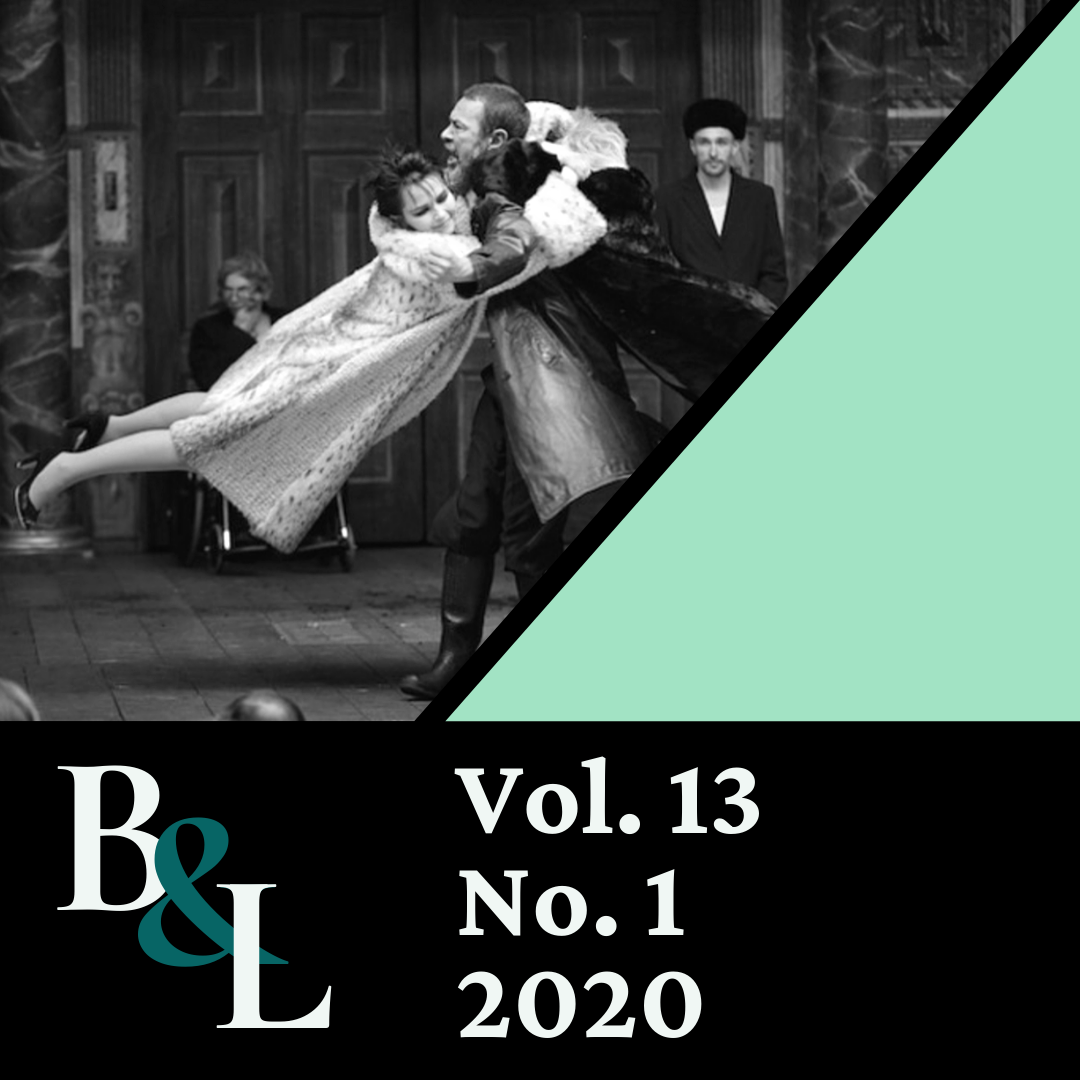Get Out and the Remediation of Othello's Sunken Place
Beholding White Supremacy's Coagula
Abstract
As a result of director and writer Jordan Peele's remediation of the horror genre to create a racially polemic film, breakout horror-thriller Get Out (2017) has achieved critical and commercial success while substantially affecting how Americans think about and approach race. As stories about a black man amidst an all-white community who ultimately strangles his white female lover, Get Out and Shakespeare's Othello share obvious narrative overlaps. Othello, however, maintains a more tenuous status regarding race and its function within the storyline than does Get Out. Othello remains a play mired in questions about how or even whether it can be staged (or filmed) in a way that shakes off its legacy of vexed racial dynamics. Get Out does not suffer from such questioning; instead, it achieves the difficult feat of spurring multicultural audiences to root for the black Chris Washington (Daniel Kaluuya) as he successfully murders the Armitages, a neoliberal, upper-middle-class white family. Get Out's unexpected success, I argue, suggests a powerful framework for reorienting how we conceive of Othello's racial dynamics to imagine more ethically the play and its racial representation in the 21st century. Specifically, through its central concepts of the "coagula" and "the sunken place" — concepts that explain the visceral threats of whiteness upon black individuals — the film articulates a racial framework that places blame for Othello's extreme responses not on his blackness, but rather on the physiological and psychological violence enacted upon him by white supremacy. Thus, using Get Out as a framework for reconsidering Othello opens up a means of remediating the racial representation that continues to haunt Shakespeare's tragedy.


